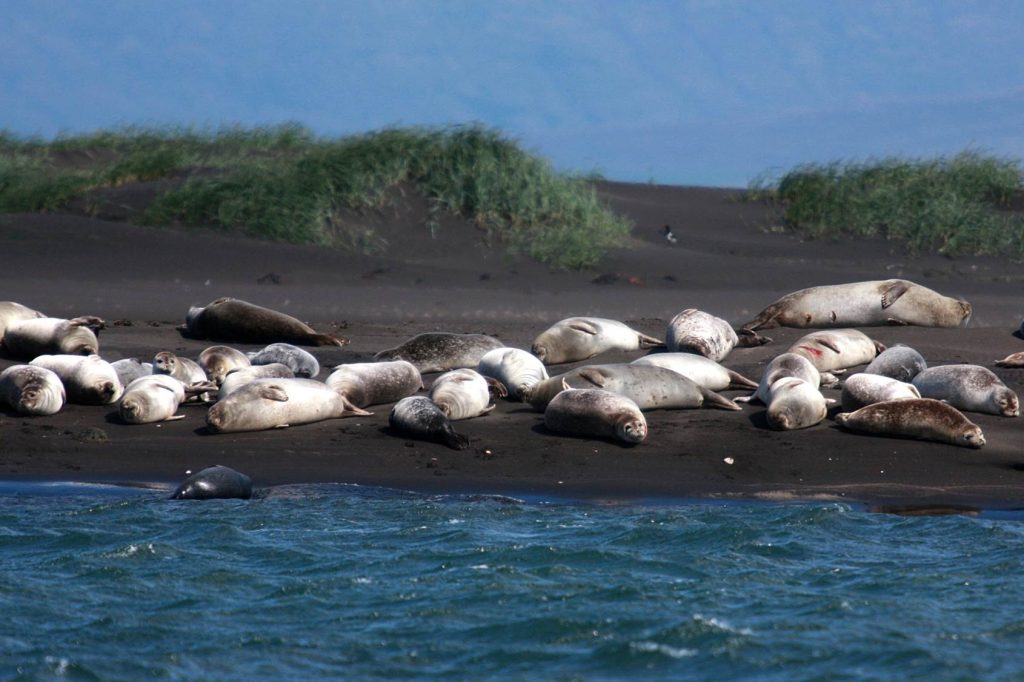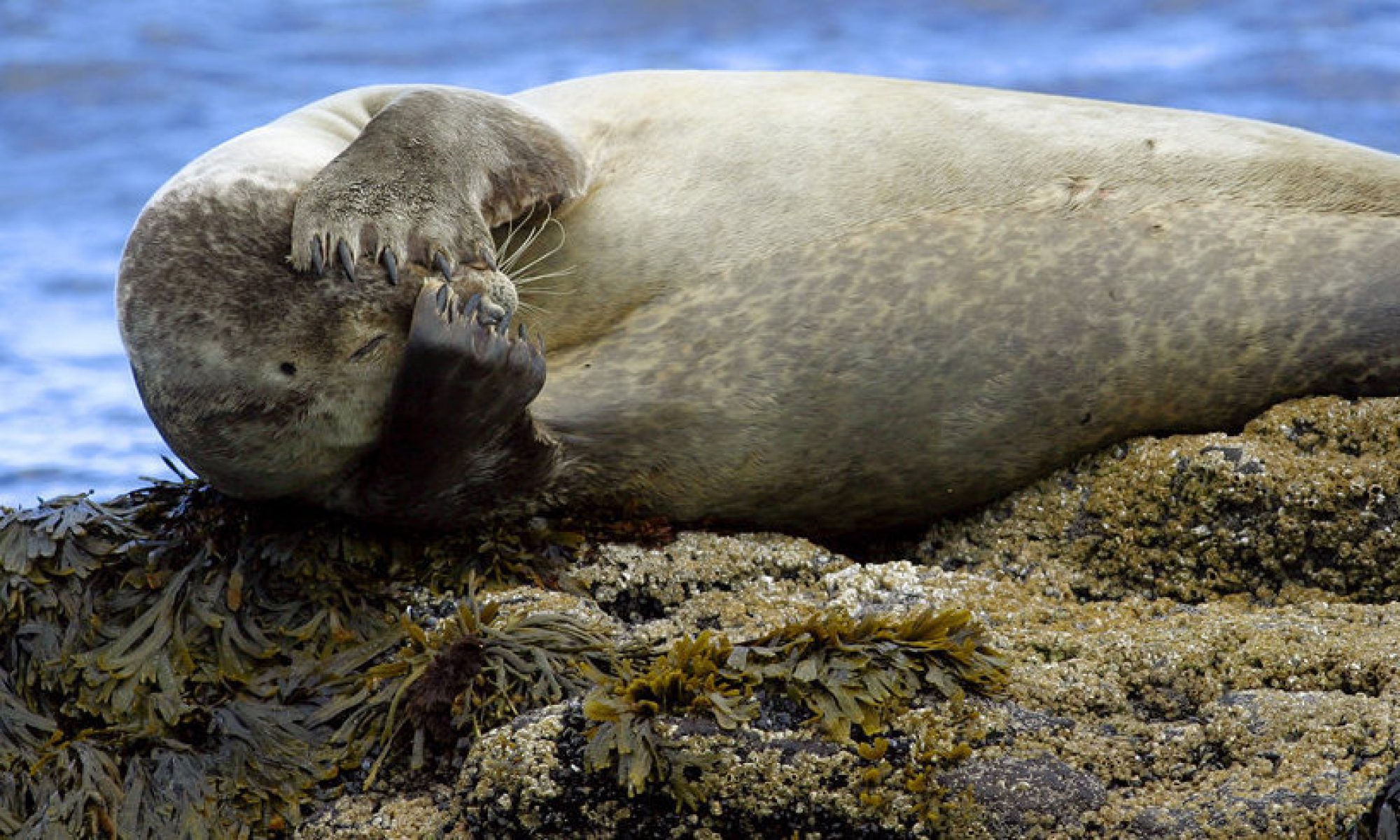
Recently, a paper on harbour seal origin and distribution based on genetic studies was published in the scientific journal Molecular Ecology. It´s titled is „Origin and expansion of the world’s most widespread pinniped: Range-wide population genomics of the harbour seal (Phoca vitulina)“. Sandra M. Granquist, a specialist at the pelagic division at the Marine and Freshwater Research Institute and Head of department at The Icelandic Seal Center is one of the authors.
The harbour seal (Phoca vitulina) is the most widely distributed pinniped, occupying a wide variety of habitats and climatic zones across the Northern Hemisphere. Intriguingly, the harbour seal is also one of the most philopatric seals, raising questions as to how it colonised virtually the whole of the Northern Hemisphere. To shed light on the origin, remarkable range expansion, population structure and genetic diversity of this species, we used genotyping‐by‐sequencing to analyse ~13,500 biallelic SNPs from 286 individuals sampled from 22 localities across the species’ range. Our results point to a Northeast Pacific origin, colonisation of the North Atlantic via the Canadian Arctic, and subsequent stepping‐stone range expansions across the North Atlantic from North America to Europe, accompanied by a successive loss of genetic diversity. Our analyses further revealed a deep divergence between modern North Pacific and North Atlantic harbour seals, with finer‐scale genetic structure at regional and local scales consistent with strong philopatry. The study provides new insights into the harbour seal’s remarkable ability to colonise and adapt to a wide range of habitats. Furthermore, it has implications for current harbour seal subspecies delineations and highlights the need for international and national red lists and management plans to ensure the protection of genetically and demographically isolated populations.
You can find the paper here:

